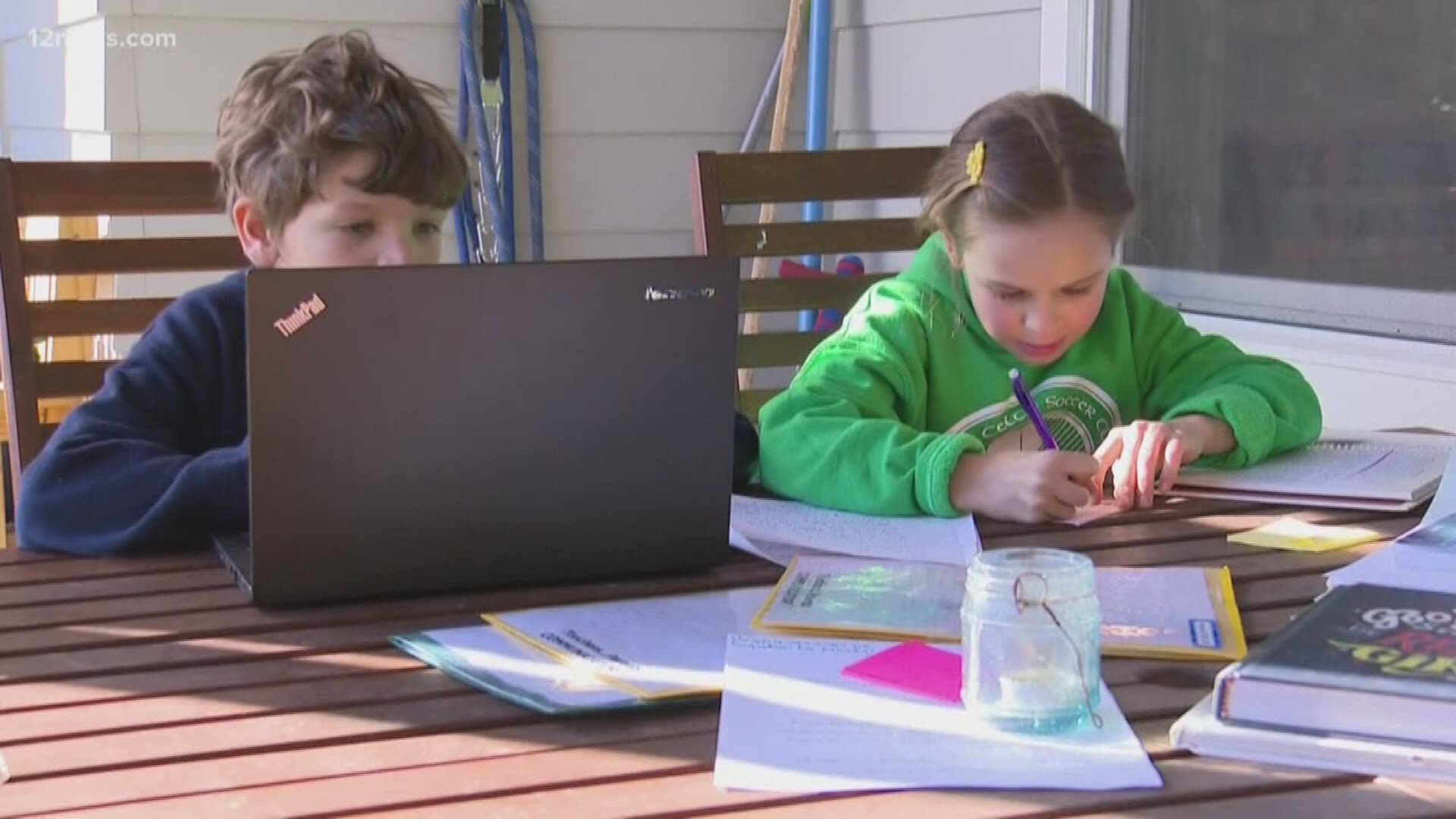PHOENIX — It has been more than a month since classes were last held in a physical school. Since then, there has been a rush of distributing computers and hot spots as teachers have rushed to prepare classes for an online format.
“Nothing about this year is normal," State Superintendent of Public Instruction Kathy Hoffman told 12 News Wednesday. "I think we are through the hardest part which is the transition.”
"Our teachers are amazing, they are stepping up," Hoffman said.
There have been challenges. While some students have excelled having more freedom that comes with working online, Hoffman acknowledges it's not that way for all students.
“There are so many challenges,” Hoffman said. “Nothing will compare to our students being in the classroom."
Hoffman said some classes are difficult to carry out online, especially for those just starting school.
"Trying to teach an online kindergarten class, I think we can imagine what that looks like," Hoffman said.
Sometimes students have been put into a disadvantage by conditions outside of their control, such as if there is a lack of internet connectivity.
Hoffman said a survey carried out over the state tried to analyze the need for a stronger internet connection in the state.
She said while the data is still being aggregated, there was a "significant" portion of Arizona students without access to the needed internet connection.
The major question though on many students, teachers and parents' minds is, when will students return to school?
"As of right now the plan is for schools to reopen in the next school year," Hoffman said. "With that, things could change very quickly there could be so many things we can’t predict so we are planning for all types of scenarios."
The statewide order closing Arizona schools lifts at the end of this school year. Hoffman said some districts are considering holding summer school, while other districts will cancel it.
Hoffman said her office is coming up with a set of guidelines to help districts through the process of reopening. The guidelines will be focused on three prongs, including education, mental and physical help.
However these are only guidelines. Arizona is a local control state. Because of that, the decision of when and how to reopen is left to the individual districts.
“Districts do have that right to make that decision themselves but I would encourage them to make that decision with county health officials,” Hoffman said.
This could potentially lead to some districts opening back up and allowing students back in the classroom, while other state districts stay online or remaining closed.
“I hope we don’t have to deal with that situation,” Hoffman said.
Local control has also allowed a variance in how grades are being handled in different districts. Some school districts have adopted a policy of "do no harm," where grades cannot get worse, only better. Other districts are continuing to grade students as if school did not move online.
Superintendent Hoffman said she did not prefer one system over the other but says she has been advocating that any types of policy changes should be supportive and not punitive.
Some parents have expressed concern how the different grading styles could impact their child to get scholarship money or into the school of their choice.
Hoffman said universities will likely take this unique time into account.
Hoffman said the state is trying to plan for all cases, but the reality is there is not a firm plan in place as so much is still unknown.
“We can’t predict what this is going to look like," Hoffman said. "I know we don’t have all the solutions yet, but we are all working on it."

